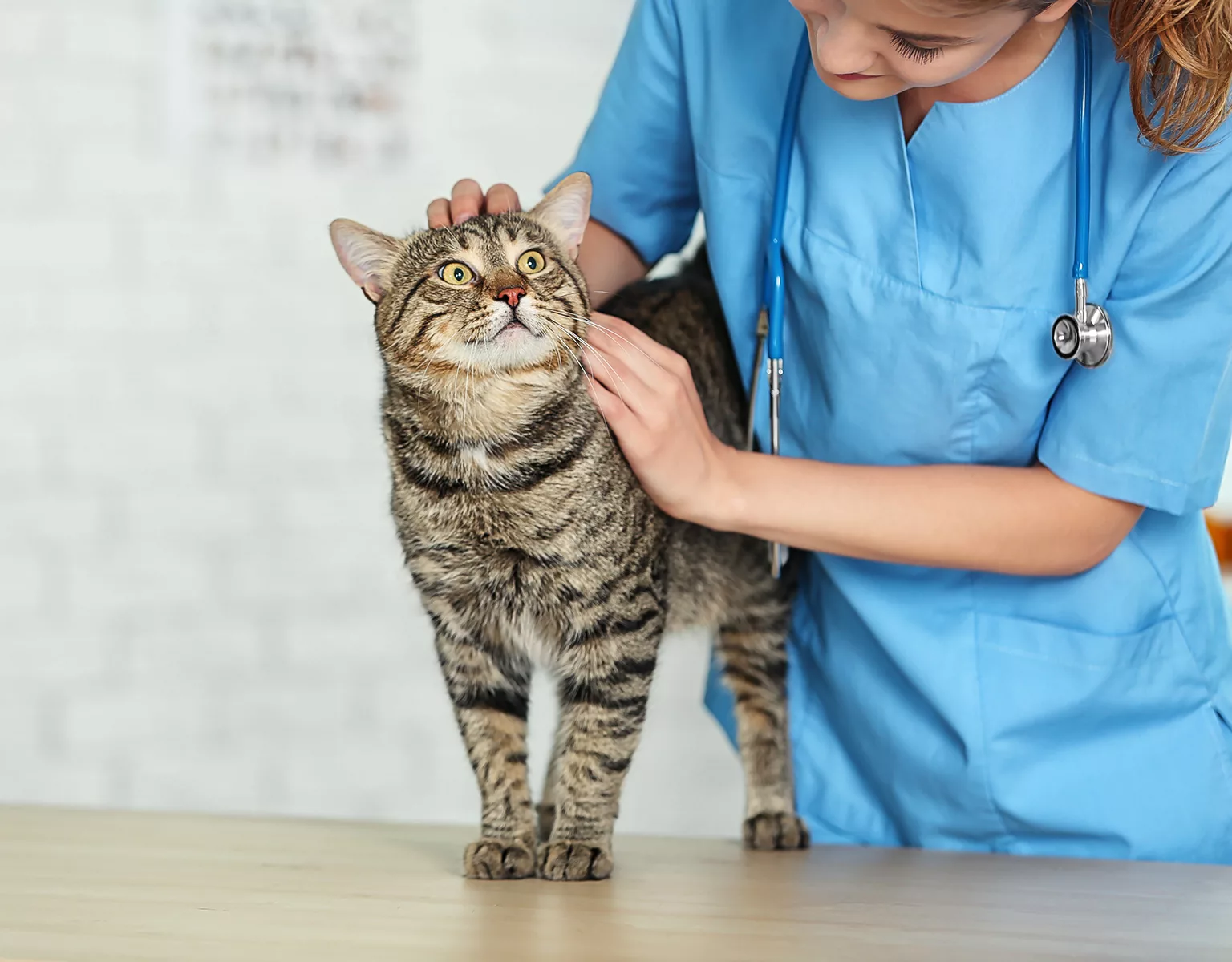A working environment where team members feel supported, valued and heard is being created by Rarebreed Veterinary Partners. CEO, Dan Espinal, tells us more about this new kind of veterinary workplace.
REIMAGINING THE VETERINARY EXPERIENCE
For animal lovers, becoming a veterinarian is one of the most popular, rewarding and exciting career choices.
The love of a pet cat or dog is unconditional, and there is immense gratification to be had from working with these affectionate animals day in, day out.
Vets are not only tasked with diagnosing, treating, and helping our furry friends to feel better, but also educating pet owners, who encompass more than 70 percent of US households, on the preventative measures they can take to promote optimum animal well-being.
It is, however, a physically and mentally demanding industry that is not without its challenges.
Many vets, for example, suffer a tremendous amount of burnout and compassion fatigue, where long hours and exposure to heart-wrenching emotional situations and trauma can take their toll on staff. Indeed, the Centers for Disease Control and Prevention (CDC) estimates that nearly one in 10 veterinarians experience severe psychological distress.
In response to these crippling industry challenges, Rarebreed Veterinary Partners (Rarebreed) was co-founded in 2018 by CEO, Dan Espinal, and COO, Sean Miller, to create a new kind of veterinary workplace.
Aware that the high demands of the veterinary profession can lead to physical and emotional fatigue among practices, Rarebreed’s single vision is to reimagine the veterinary experience and make work actually work for people.
“I’ve worked with so many veterinarians who just love what they do, but I’ve also seen a lot of folks struggle to stay in this profession,” observes Espinal.
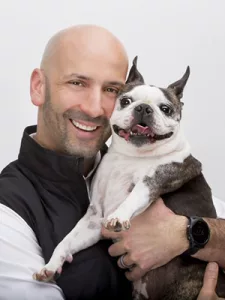
“There’s a lot we can do to change the paradigm. Part of it is rewarding our people well, and there’s also an element of listening and making them feel valued.”
Dan Espinal, CEO, Rarebreed Veterinary Partners

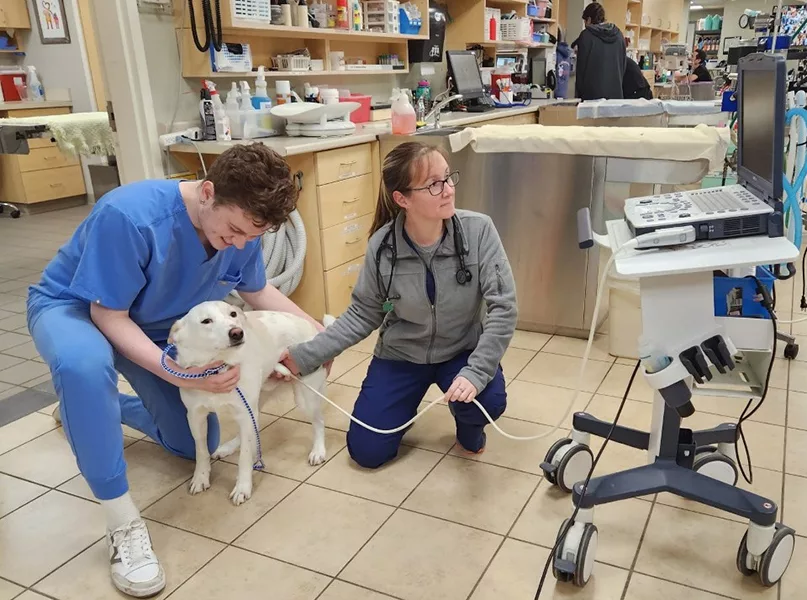
INSIGHTFUL EXPERIENCE
It was Espinal’s time as an infantry officer in the US Army that originally opened his eyes to the sacred bond between humans and animals.
Espinal reflects on his time spent in Afghanistan as “an incredible and particularly insightful experience”, one in which there was a stark contrast between how the locals and US soldiers treated canines.
“We took them in, gave them names, provided shelter, and most importantly they made us feel like we were at home,” he recalls.
It was at this point that Espinal realized a tremendous business opportunity, and that our relationship with animals goes well beyond what we can even comprehend today.
“The more we understand about the way our own minds work, the more value we’ll see in the human-animal bond. I think it’s particularly important to have that conversation, especially as we’re better able to identify mental health issues and actually realize that they’re pretty ubiquitous,” Espinal continues.
“I think animals provide an amazing tool to help us feel safe and loved.”
Upon return, Espinal went into venture capital investing and was inspired by the entrepreneurs taking risks and creating cool, exciting companies, before heading up the in-house chemistry business and Corporate Development and Strategy team at IDEXX Laboratories (IDEXX).
It was here that Espinal first met Miller, who himself held various roles in both IDEXX’s Corporate Development and Strategy, and Corporate Accounts teams.
“We ended up learning a lot about each other, found each other incredibly complementary, and spent the better part of three years kicking around business ideas, one of which ended up becoming Rarebreed,” shares Espinal.
“We got to see the proliferation of software start-ups entering our space, and IDEXX was one of the bigger acquirers of those companies, so we got to meet a whole bunch of interesting entrepreneurs trying to bring software solutions to enhance the client experience and patient outcomes.”
The dynamic duo realized that the market is, unusually, not constrained by demand, but supply – more specifically, the supply of talented, qualified veterinarians and veterinary technicians to meet demand at the point of need.
Thus, it dawned on Espinal and Miller that if they could treat people well, pay them competitively, provide great benefits and introduce creative incentives, they would have a highly differentiated platform.
“Rarebreed was born, we bought our first practice in 2019, and the rest is history. What we’re really trying to do is prove to the world that you can create a company in this industry that really does care for its people, creates the best working environment, and at the same time is effectively run.”
“I think animals provide an amazing tool to help us feel safe and loved”
Dan Espinal, CEO, Rarebreed Veterinary Partners 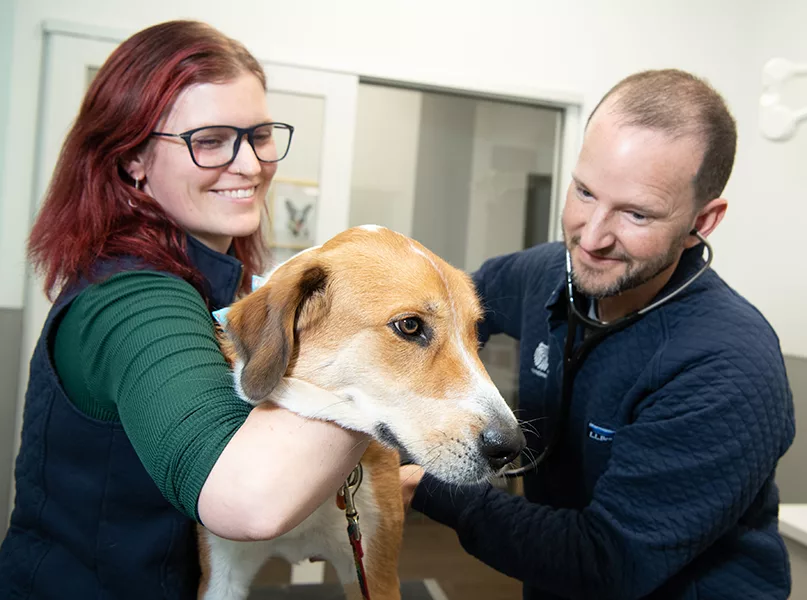

CARING FOR TEAM MEMBERS
Today, there are just shy of 130 Rarebreed locations spanning from Florida to Maine, with a very strong concentration of facilities in the northeast.
A structured company culture permeates throughout the whole business, built on a family-first mentality that creates an encouraging, open, and fun working environment that fosters team member growth from all angles.
As people are the foundation of the company, it’s crucial that Rarebreed takes care of its team members from both a mental and physical standpoint.
Equally, technicians are empowered to maximize their wide range of skills in Rarebreed’s veterinary hospitals, whilst doctors and management are encouraged to trust their technicians and staff to perform the tasks they’re trained for.
The result of investing in people? Happier team members and a lower turnover of staff.
“Good culture eats strategy for breakfast, so you really need to be able to operate, integrate, and differentiate the business,” Espinal explains.
“We have sought to do that by building unique capabilities that encourage best-in-class retention. We’re able to keep our veterinarians and we’re able to keep them happy.”
Rarebreed believes that team members who feel valued, appreciated and connected to an organization provide better care for pets and owners, and continues to find ways to attract and retain the brightest and kindest minds in the veterinary profession.
Showing appreciation for team members also means taking care of them financially, with the company offering generous benefits and pay that transcends the professional average.
Similarly, diversity and inclusion is integral to making sure everyone at Rarebreed has a place where they can thrive, regardless of race, gender, sexual orientation or credentials.
“The industry is diverse from a gender perspective, particularly our business, but it’s not diverse from a racial perspective, which is something that has a long way to go,” emphasizes Espinal.

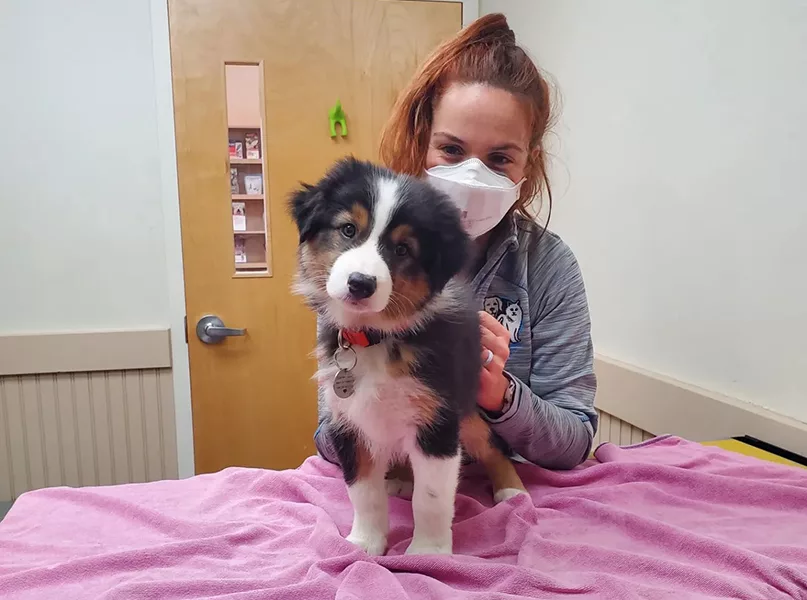
INCREASED ACCESS TO CARE
Acting on strategy, which is secondary to culture, Rarebreed is introducing innovations to encourage better medical outcomes and client experiences.
As well as objective-based staff incentives, telemedicine is coming to the veterinary market, something that is already prevalent in human healthcare.
“Pet owners are often forced to diagnose the pet themselves, so wouldn’t it be amazing if you could talk to a veterinary professional on the phone and have them guide you to a specialist, general practitioner, or urgent care?
“It’s a better utilization of labor, it’s a better client experience, and it’s likely a better medical outcome for the pet,” states Espinal, who along with Miller was named Entrepreneur of the Year in the 2021 New England Awards program.
Given the crisis of labor and constraints on supply in what is a multi-stakeholder environment, one that comprises clinicians, medical professionals, veterinarians, clients and patients, telehealth is likewise providing increased access to care for pet owners as well as this improved experience.
“There’s about 17 open positions for every one veterinarian looking for a job, and typically that individual has three or four offers. We don’t have enough vets, simply put,” acknowledges Espinal.
“With more and more people adopting and seeing the value and companionship of animals, it’s about how we change this customer experience where it’s really hard to see a vet, and when you do, it’s super expensive.”
Same-day, after-hours urgent care is another idea that Rarebreed is excited about in this regard. As part of the Rarebreed ecosystem, PetMedic urgent care clinics manage after-hours, non-emergency cases, providing relief to general practices and emergency hospitals.
PetMedic is there for the in-between moments of pet care when it’s not quite an emergency but regular veterinarian hours cannot wait, and was designed to fill the void for concerned pet owners, local family veterinary practices, and emergency rooms.
“This kind of format services clients after-hours and over the weekends, and it’s really exciting for veterinarians because they get to practice to the highest extent of their license,” Espinal informs us.
HYPERBOLIC GROWTH
Rarebreed has gone through what Espinal describes as “hyperbolic growth” over the last three or four years, as evidenced by the acquisition of Vet’s Best Friend Group.
The landmark deal added 47 locations to the Rarebreed family, a major milestone for the company and the veterinary community.
With dreams of building an integrated healthcare network for pets that offers the full suite of services all the way to end of life, Rarebreed is now one of the largest practice groups in the country and is well positioned for rapid future expansion.
“We are continuing to grow in the areas in which we play. The way we think about expanding and growing the business is by building density and building clusters,” Espinal notes.
The space is highly unregulated in the US, so one of the challenges for Rarebreed when it comes to such acquisitions is the highly fragmented nature of electronic medical record (EMR) systems.
As there is no single de facto EMR system or standard in place, it means each practice has its own practice management system and set of tribal conventions, which might not match those of another acquired practice.
For operators such as Espinal and Miller, it’s therefore about getting the analytical insight needed to run the business.
“Sean and I saw this happen in real time at IDEXX, and what we said from the start was that we were going to be technology driven – one, so we can run the business better, and two, so we can enable the conditions to engage clients in a more effective way,” Espinal says.
“What we’ve done is we’ve created a proprietary back end that allows us to integrate with different practice management systems. We aggregate the data, normalize it, and expose it via an application programming interface (API) to integrate different horizontal microservices, so that’s the approach we’ve taken.
“We’ve also made some investments in acquiring and investing in technology companies, which I think is a little unusual for players in our space,” he continues.
Enabled by technology with a very compelling employee value proposition, Rarebreed’s offerings across the spectrum of care therefore deliver what it believes is best-in-class medicine to people with pets.
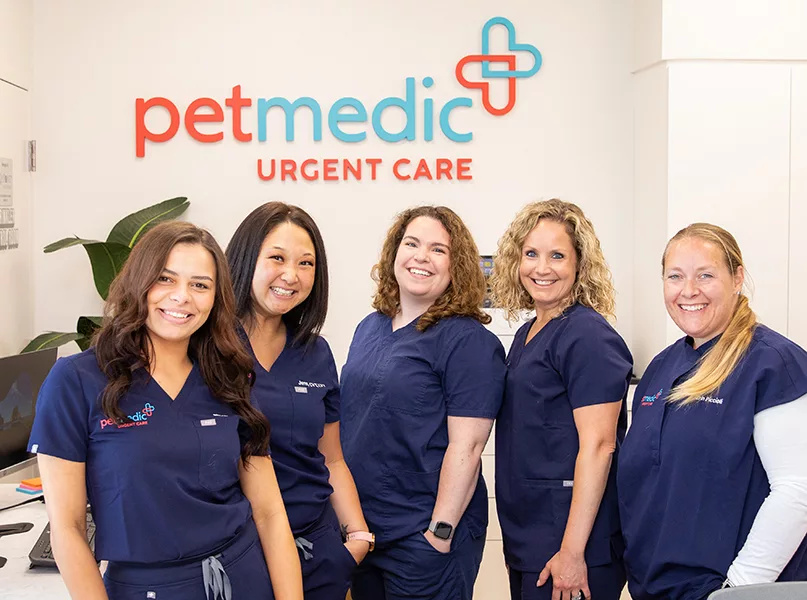
FUTURE FOCUS
As Rarebreed continues to grow, the company is also leaning more into specialty medicine, which it believes is a fundamental part of the future, and purchasing more large format hospitals.
“It was a hyper competitive market a year ago, when everybody saw that it has amazing growth trends and is largely resilient to recession, so a lot of private equity capital has poured into the space to buy assets.”
With inflation increasing and the signs of recession approaching, however, the company is now trying to be more prudent with its allocation of capital.
“We’re being a lot more selective about what we’re buying and the prices that we’re paying, simply because the cost of capital has gone up and we want our team to really tighten up operations to deliver a better experience for all our stakeholders,” outlines Espinal.
From a practical perspective, the future for Rarebreed in the short and medium term centers on the Eastern US, with a very heavy presence in specialty, emergency, general practice and urgent care.
The company is equally thinking long and hard about how it stewards the environment, and is currently working towards B Corp certification, which designates businesses that meet high standards of verified performance, accountability, and transparency.
“It shows that you’re actually measuring your impact against a bunch of different environmental, regulatory, social and governance issues,” Espinal elaborates.
“We’re going through that evaluation now to see how well we stack up and demonstrate that we’re actually holding ourselves to high standards.”
As leaders in the movement for economic systems change, B Corps enjoy remarkable benefits that Rarebreed is already well on the way to reaping, such as attracting and retaining employees and building trust with consumers and communities.
Required to undergo the verification process every three years in order to recertify, B Corps are also focused on continuous improvement, something that is ingrained in Rarebreed’s industry-defining veterinary experience.
“We want to show the world that we can pay our people the best, drive the most profitable business, and take the greatest care of clients and patients. That’s what we mean by industry-defining,” affirms Espinal, who is bullish about business going forwards.
“We’ve got a long way to go as an industry, but the future for us is bright. Business is running really well, the foundation is strong, the culture is great, and those are all things that we don’t take lightly.”



